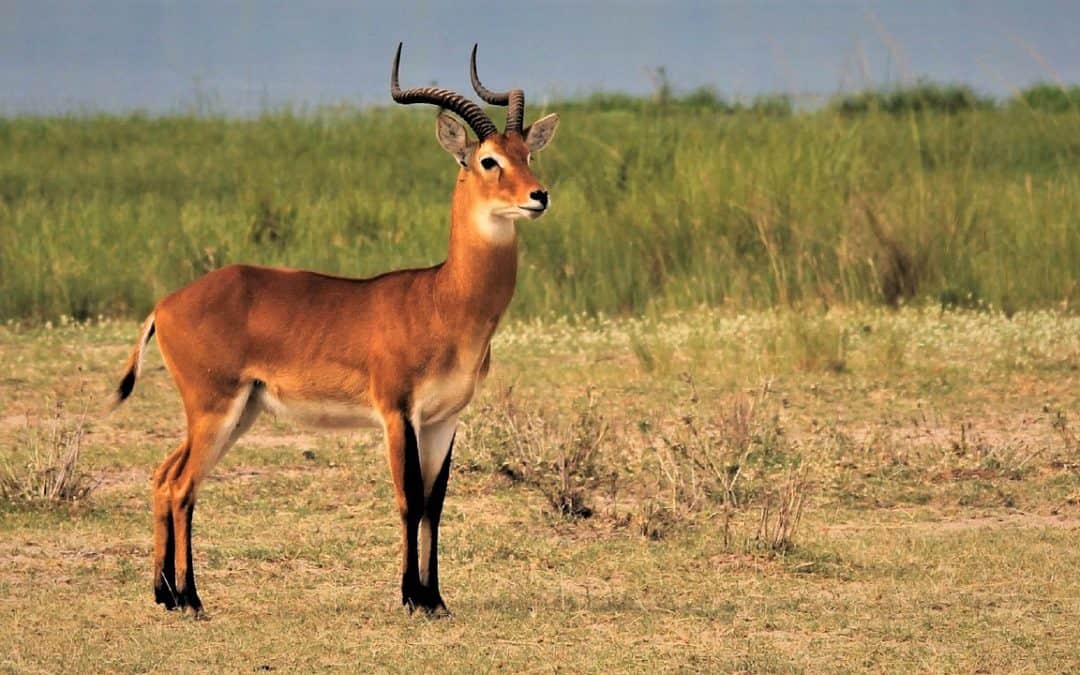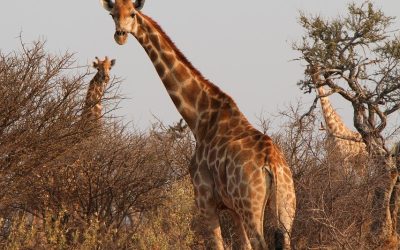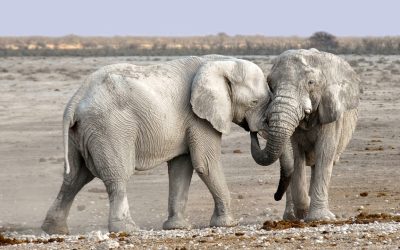So you’ve always wanted to experience the thrill of hunting in a pristine and untouched wilderness? Well, look no further than Gwayi Conservancy. Nestled in the heart of Zimbabwe, this extraordinary 1,979-square-kilometer expanse offers a unique opportunity to immerse yourself in the African wilderness. With its diverse range of wildlife and stunning landscapes, Gwayi Conservancy provides the perfect backdrop for an unforgettable hunting adventure. Whether you’re a seasoned hunter seeking a new challenge or a beginner looking for a taste of the wild, Gwayi Conservancy promises an exhilarating experience like no other.
Location and Overview
Geographical location of Gwayi Conservancy
Gwayi Conservancy is located in North-western Zimbabwe, spanning an area of approximately 3,600 square kilometers. Situated between the Dete and Tsholotsho Districts, the conservancy borders Hwange National Park to the northeast. Its diverse landscape comprises of open grasslands, woodland areas, and riverine forests, making it an ideal habitat for a wide range of wildlife.
Conservation efforts in Gwayi Conservancy
Gwayi Conservancy is committed to the preservation and conservation of wildlife and their habitats. It plays a vital role in maintaining biodiversity and protecting endangered and threatened species within its borders. The conservancy actively collaborates with local communities, government agencies, and conservation organizations to implement sustainable conservation practices.
Flora and fauna in Gwayi Conservancy
The varied ecosystems in Gwayi Conservancy support an abundance of flora and fauna. The grassy plains are home to a wide range of antelope species such as impala, kudu, and eland. The woodland areas offer shelter to leopard, hyena, and civet, while the riverine forests provide a habitat for crocodiles, hippos, and a rich diversity of birdlife. Gwayi Conservancy is also known for its impressive population of elephants and buffalo, among other big game species.
Hunting Regulations
Licensing requirements for hunting in Gwayi Conservancy
To engage in hunting activities in Gwayi Conservancy, individuals are required to obtain a hunting license. These licenses can be obtained through registered safari operators who are authorized to conduct hunts within the conservancy. Hunters must provide necessary documents, including a valid hunting permit, firearm license, and passport, to satisfy legal requirements.
Restricted and protected species
Gwayi Conservancy strictly enforces restrictions on hunting certain species to ensure their long-term survival. Endangered and threatened species such as rhinoceros, African elephant, and lion are protected and hunting them is strictly prohibited. The conservancy upholds these regulations to protect the delicate balance of the ecosystem and contribute to global conservation efforts.
Hunting seasons and quotas
Hunting in Gwayi Conservancy is regulated through seasons and quotas, ensuring sustainable practices. Hunting seasons are determined based on ecological factors and species requirements, taking into consideration breeding seasons and migration patterns. Quotas are set for each species, limiting the number of animals that can be hunted, to prevent overexploitation and maintain healthy population levels.

Hunting Methods
Traditional hunting methods in Gwayi Conservancy
Gwayi Conservancy takes pride in preserving traditional hunting methods that have been passed down through generations. These methods include stalking and tracking game on foot, using traditional bows and arrows, spears, or muzzleloading firearms. These age-old practices not only provide an authentic hunting experience but also help maintain cultural heritage within the local communities.
Modern hunting techniques
In addition to traditional methods, modern hunting techniques are also employed in Gwayi Conservancy. Modern hunters utilize scoped rifles, shotguns, and high-quality hunting equipment to increase accuracy and efficiency. The use of hunting vehicles and technology such as GPS devices and trail cameras has also become prevalent, aiding in tracking and locating game.
Bowhunting vs. rifle hunting
Gwayi Conservancy offers both bowhunting and rifle hunting opportunities, catering to the diverse preferences of hunters. Bowhunting requires exceptional skill and precision, allowing hunters to get up close and personal with their quarry. On the other hand, rifle hunting provides hunters with greater range and firepower, making it ideal for individuals who prefer a more strategic approach.
Game Species
Popular game species in Gwayi Conservancy
Gwayi Conservancy is renowned for its abundance of game species, providing exciting hunting opportunities for enthusiasts. Common game species include impala, kudu, eland, waterbuck, zebra, and warthog. These species offer hunters a thrilling experience, showcasing the diversity of wildlife found within the conservancy.
Big game hunting opportunities
For those seeking a more adventurous hunting experience, Gwayi Conservancy offers opportunities for big game hunting. Majestic species such as elephant, buffalo, leopard, and hippopotamus can be pursued under regulated conditions. These hunts require precise planning, exceptional skill, and the guidance of professional hunting guides.
Endangered and threatened species protection
Gwayi Conservancy is committed to the preservation of endangered and threatened species. Through strict regulations and protection measures, the conservancy contributes to the conservation of species such as the critically endangered black rhinoceros. This dedication is essential in safeguarding these unique animals for future generations.
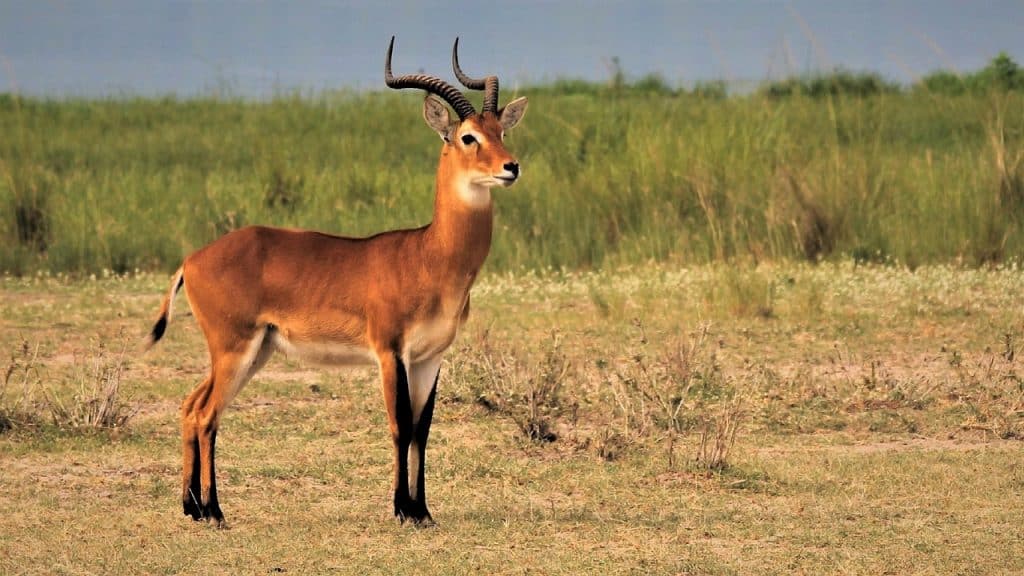
Professional Hunting Guides
Role and importance of professional hunting guides
Professional hunting guides play a crucial role in facilitating safe, ethical, and successful hunts in Gwayi Conservancy. They possess an in-depth knowledge of the local ecosystems, animal behavior, and hunting laws and regulations. These guides provide valuable assistance in tracking, locating, and identifying game, ensuring that hunters have an unforgettable experience.
Qualifications and certifications
Professional hunting guides in Gwayi Conservancy undergo rigorous training and certification processes to ensure their expertise and adherence to ethical hunting practices. They receive comprehensive education in wildlife conservation, firearm safety, and animal behavior. The conservancy requires guides to maintain valid certifications and stay up-to-date with current regulations and best practices.
Ethical hunting practices
Gwayi Conservancy places a strong emphasis on ethical hunting practices, and professional hunting guides are instrumental in promoting and upholding these principles. They advocate for fair chase, respect for the animal, and the utilization of the harvested game. Guides ensure that hunts are conducted in a responsible manner, minimizing stress and unnecessary suffering for the animal.
Trophy Hunting
Overview of trophy hunting in Gwayi Conservancy
Trophy hunting is a significant aspect of hunting in Gwayi Conservancy, attracting hunters from around the world. Hunters have the opportunity to pursue trophy-quality animals, typically targeting species with impressive antler, horn, or tusk size. The conservancy strictly regulates trophy hunting to ensure sustainable practices and the maintenance of healthy populations.
Trophy hunting regulations and permits
Hunters engaged in trophy hunting must adhere to specific regulations and obtain appropriate permits. These permits are carefully allocated based on conservation objectives, which include maintaining genetic diversity and the overall health of the species. Strict record-keeping and monitoring of trophy hunts are conducted to ensure compliance with regulations and ethical standards.
Economic impact and benefits
Trophy hunting in Gwayi Conservancy generates significant economic benefits for both the conservancy and local communities. Revenue generated from hunting activities is often reinvested into conservation efforts, supporting wildlife management, community development programs, and anti-poaching initiatives. Additionally, trophy hunting creates employment opportunities and fosters sustainable tourism, contributing to the overall economic growth of the region.
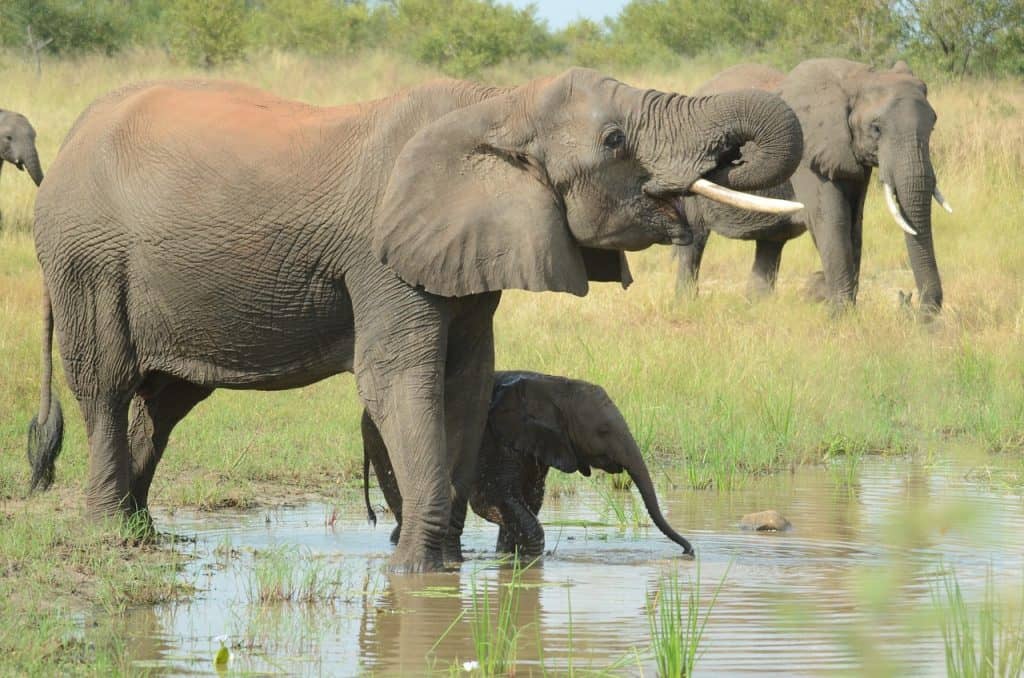
Conservation and Sustainability
Conservation initiatives supported by hunting activities
Contrary to common misconceptions, hunting in Gwayi Conservancy actively supports conservation initiatives. The revenue generated from hunting activities provides essential funding for wildlife conservation programs, including habitat restoration, anti-poaching efforts, and community-based initiatives. These conservation efforts contribute to the overall preservation of biodiversity and the long-term sustainability of the region.
Revenues generated for conservation efforts
Hunting in Gwayi Conservancy generates substantial revenues, which are instrumental in financing conservation initiatives. These funds aid in the maintenance and protection of wildlife habitats, preservation of endangered species, and education and awareness programs. The conservancy ensures that a significant portion of the revenue is allocated towards conservation, furthering their commitment to sustainable practices.
Contribution to local communities
Hunting activities in Gwayi Conservancy also have a positive impact on local communities. Revenue generated from hunting operations creates employment opportunities, benefiting guides, trackers, camp staff, and other community members. Additionally, the conservancy collaborates with neighboring communities to develop capacity-building initiatives, educational programs, and infrastructure improvements, improving the overall quality of life for local residents.
Accommodation and Facilities
Lodges and camps in Gwayi Conservancy
Gwayi Conservancy offers a range of lodges and camps to cater to the needs of hunters. These accommodations vary from luxury lodges to more rustic campsites, providing a comfortable and immersive experience in the wilderness. Lodging options often feature amenities such as spacious rooms, dining facilities, and relaxation areas, allowing hunters to unwind after an exhilarating day in the field.
Amenities and services for hunters
Hunting in Gwayi Conservancy is supported by a comprehensive range of amenities and services. Lodges and camps offer services such as professional guides, trackers, and skinners. They provide equipment rentals, including firearms and ammunition, as well as field dressing and trophy preparation services. Additionally, some accommodations offer specialized facilities such as shooting ranges and trophy display areas.
Transportation and logistics
Gwayi Conservancy ensures convenient transportation and logistics for hunters. Many accommodations offer airport transfers, ensuring a seamless transition from arrival to the hunting grounds. Additionally, transportation within the conservancy, including game drives and hunting excursions, is typically provided by the lodges or can be arranged through professional hunting guides.
Hunting Safety and Ethics
Safety guidelines for hunting in Gwayi Conservancy
Safety is of paramount importance in Gwayi Conservancy, and strict safety guidelines are in place to ensure the well-being of hunters. Hunters are required to attend safety briefings and follow specified protocols regarding firearm handling, wildlife encounters, and emergency procedures. Adherence to these guidelines, along with the guidance of professional hunting guides, helps mitigate potential risks associated with hunting.
Ethical considerations for responsible hunting
Responsible hunting in Gwayi Conservancy adheres to a set of ethical considerations. Hunters are expected to respect both wildlife and local communities, ensuring minimal disturbance to the ecosystem and demonstrating appreciation for cultural norms. Responsible hunters also practice selective harvesting, targeting older animals or those contributing to population management plans, and utilizing harvested game for sustenance or donation to local communities.
Preventing illegal hunting activities
Gwayi Conservancy maintains a zero-tolerance approach towards illegal hunting activities. It actively collaborates with law enforcement agencies to combat poaching and illegal hunting practices. The conservancy implements strict surveillance measures, including regular patrols, camera traps, and informant networks, to deter and detect any illegal activities. The community is also encouraged to report any suspicious behavior or wildlife-related crimes to ensure the protection of the conservancy’s valuable resources.
Other Recreational Activities
Alternatives to hunting in Gwayi Conservancy
For individuals who prefer non-consumptive wildlife experiences, Gwayi Conservancy offers a range of alternative recreational activities. Opportunities for photographic safaris and wildlife viewing are available, allowing visitors to appreciate the diverse flora and fauna without engaging in hunting. These activities can be tailored to individual preferences, providing an immersive and educational experience.
Photographic safaris and wildlife viewing
Gwayi Conservancy’s photogenic landscapes and diverse wildlife make it a paradise for nature and photography enthusiasts. Photographic safaris and wildlife viewing tours offer opportunities to capture breathtaking images of iconic African wildlife, from elephants and lions to birds in flight. Local guides provide invaluable insights into the behavior and natural history of the wildlife, enhancing the overall experience.
Adventure sports and nature walks
In addition to traditional wildlife experiences, Gwayi Conservancy offers opportunities for adventure sports and nature walks. Visitors can embark on thrilling activities such as horseback riding, mountain biking, or guided hiking trails, immersing themselves in the stunning natural surroundings. These activities allow for a deeper connection with nature and provide a different perspective on the conservancy’s diverse ecosystem.
In conclusion, Gwayi Conservancy in Zimbabwe offers a unique and exciting hunting experience amidst its diverse landscapes and abundant wildlife. Strict regulations, ethical practices, and the involvement of professional hunting guides ensure the sustainability of hunting activities while contributing to wildlife conservation and benefiting local communities. With its range of recreational activities, Gwayi Conservancy provides an opportunity for individuals with different interests to appreciate the beauty and splendor of this remarkable conservation area.

